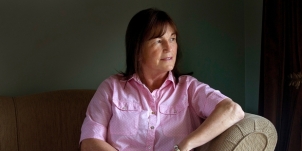
Earlier this month, Radio New Zealand reported that the Corrections Department was paying for alcohol and drug counsellors that don’t exist. The reason they don’t exist is because CareNZ, the alcohol and drug agency contracted by Corrections to provide these counsellors, has been unable to find sufficient qualified staff. Care NZ Chairman, Michael Bird, told RNZ that:
“Prisons are tough places for people to work in and there was a lot of churn amongst his staff”.
“I fully admit that there are problems within the staffing of our organisation.”
There are nine Drug Treatment Units (DTUs) in prisons up and down the country, eight of them run by CareNZ. Diane Robinson used to work as a counsellor in the DTU at Springhill prison. She told the NZ Herald that because of understaffing, she sometimes worked alone with 30 male inmates.

Ms Robinson said that CareNZ was supposed to supply 4.5 full-time counsellors at Springhill but in the two years she was there, they were almost never fully staffed. After Ms Robinson left, two other counsellors at Springhill felt so unsafe they resigned. The CareNZ culture is so toxic that the chief executive, Kathryn Leafe (pictured above) and three regional managers were ‘let go’ shortly thereafter.
Altogether, CareNZ employs about 18 AOD counsellors in the DTUs and Corrections pays the agency around $150,000 for each one (although CareNZ only pays the counsellor about $50,000). If they don’t fill these vacancies, CareNZ doesn’t have to pay the money back.
So where does the money go? It seems much of it is spent hiring expensive lawyers and making massive payouts after its employees take personal grievances against the agency because of the shabby way they have been treated.

Because of these staffing problems, the DTUs are ineffective; the Department’s annual report for 2015 said they reduced reoffending by only 4.8%. To find out what the problem was Corrections contracted Julian King and Associates, an Auckland-based consultancy firm to evaluate how well the DTUs were working. In February 2015, Julian King produced a 54 page report. It said:
“DTUs generally reflect most of the identified features of good practice, in full or with minor exceptions.”
In regard to staffing, it said: “All DTU’s meet the review criteria for qualified, competent and supervised provider staff. Provider staff have qualifications such as bachelor’s degrees and/or diplomas in counselling, addictions, psychology, social sciences, social services and/or social work. They are members, or registered practitioners, of the Addiction Practitioners Association Aotearoa and the New Zealand Association for Counsellors.”
The fact that CareNZ has consistently operated these programs with insufficient staff, or that there has been ‘a lot of churn’, was not mentioned in Julian King’s report. That’s a serious omission, but what was mentioned raises other concerns: a diploma is not an adequate qualification for someone working with prisoners who have serious addictions; nor is a graduate qualification in social sciences of much help. Counsellors working with addicts in prison need a specific qualification – one in the assessment and treatment of alcohol and drug dependence – plus about five years of experience in the field.
I wrote to Corrections asking a number of questions about these issues:
If all DTU’s meet the review criteria for qualified, competent and supervised provider staff…
1) What were the review criteria for assessing whether or not provider staff were qualified, competent and supervised?
Corrections answer: The DTU review was not an audit activity so staff and participant files were not reviewed to assess compliance.
2) Did the review include questions about CareNZ staff shortages or staff turnover?
Corrections answer: The review did not include questions about CareNZ staff shortages or staff turnover.
3) What was the minimum level of qualification considered appropriate (for the purposes of the review) to be working as an alcohol and drug clinician in a DTU. Was a minimum level established?
Corrections answer: There were no minimum qualifications levels established.
4) According to the review, how many and what percentage of CareNZ staff working in DTU’s have a graduate level qualification (specifically) in alcohol and drug studies/addictions?
Corrections answer: The information was not specifically recorded.
5) According to the review, how many and what percentage of CareNZ staff working in the DTU’s are registered as competent practitioners with DAPAANZ (the addiction counsellors’ professional body)?
Corrections answer: This information was not specifically recorded.
6) According to the review, what is the minimum number of years of prior experience working as an alcohol and drug clinician considered appropriate by CareNZ prior to working in a DTU?
Corrections answer: This information was out of scope of the review.
7) According to the review, what is the average number of years’ experience (as alcohol and drug clinicians) of CareNZ staff working in the DTUs?
Corrections answer: This information was out of scope of the review.
What this shows is that Julian King never asked any meaningful questions about staffing – mind you, Corrections probably didn’t want him to ask – and so his report was a total white wash. King appears to have been entirely unaware that CareNZ was taking money off Corrections for counsellors it had never employed; or that many of the counsellors CareNZ does employ do not have qualifications in addiction treatment and/or have little or no experience. King’s report is so superficial, it failed to reveal that Corrections is paying CareNZ $5 million a year to provide a programme it is unable to deliver- at least not effectively.
What’s going on in the DTUs is damaging to all concerned. It’s totally demoralising to place inexperienced, underqualified counsellors into a potentially hostile environment which requires years of experience to deal with; it is also dangerous for the counsellors, especially females, to be in units on their own with 30 men. No wonder counsellors resign and CareNZ has so many personal grievance cases to deal with.
On the other side of the coin, it is equally unfair for the prisoners to be given second-rate addiction treatment in programs which are permanently short staffed. Ultimately, it is the taxpayer who is being ripped off by all of this.
Mind you, what’s going on in the DTUs is just the tip of the iceberg. See: 11 out of 12 rehabilitation programmes in prison not working – at a cost of $159 million a year.
No wonder reoffending continues unabated and the prison population is at an all-time high.
No surprises there. Under Ray Smith everything is rinsed, whitewashed or swept under carpet in his office. Now with Judith as Minister it can only get worse.
LikeLike